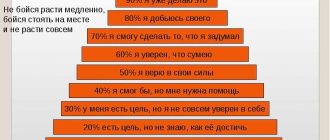- home
- Speech disorders
Children after 2 years old actively express thoughts and desires, turning to adults and peers. By the age of 3-4 years, their speech gradually becomes more complex. They can ask a question, talk about an interesting game in detailed sentences. After four years of age, children with echolalia—the habit of repeating someone else’s speech rather than composing their own statements—have difficulties communicating. What is echolalia in children, what is the cause of speech impairment and how to cope with the problem, we will tell you in our article.
Definition
Echolalia is a form of speech disorder in which children automatically, without realizing the meaning of a phrase, repeat what they hear.
Until 3-4 years of age, such behavior is not considered an anomaly. The reflexive habit of copying is even useful for children to develop speaking skills. Corrective work is not required at this stage; in a healthy child, the defect will go away on its own.
Echolalia should not be confused with echopraxia - repetition of actions and gestures. Echolalia also differs from motor stereotypy, which is characterized by aimless dynamic copying of gestures, movements and words.
If a child repeats words like this after 4 years, parents should worry. Echolalia in preschool children is a typical symptom of neurological and mental pathologies. Speech disorders become a sign of diseases such as autism, schizophrenia, mental retardation, mental retardation, and aphasia.
Important! The symptoms of echolalia and palilalia (autoecholalia) in children are similar. They can be distinguished by the following feature: with autoecholalia, the baby repeats his words with increasing speed, unconsciously and continuously. This is self-imitation. With echolalia, a kindergartener repeats sounds heard from others.
Causes and risk factors
All children experience echolalia when they first begin to learn spoken language. Most of them develop independent thinking as they age, but some continue to repeat what they hear. Children with communication disorders hang on to repeated expressions much longer. Children with autism are especially susceptible to echolalia.
Some people only experience this problem when they are worried or anxious. Others experience it constantly, which can eventually lead to muteness as they are unable to express themselves.
Adults with severe amnesia or head trauma may experience echolalia when trying to regain their speech abilities.
Symptoms
The symptoms of imitation of someone else's speech differ from the signs of a pathological disease. Speech development delays in sick children are accompanied by typical symptoms of mental and neurological disorders. It is easier to distinguish between the conditions after 4-5 years of age; up to 2-3 years of age in infants it is almost impossible; the help of a doctor is required.
The main manifestations of the imitative symptom are:
- Reproduction of a heard phrase, word or syllable immediately, after a period of time.
- Repeating sentences to calm down, in moments of strong feelings.
- Quiet, slurred speech.
- Unexpressed facial expressions.
- Reluctance to answer, ignoring questions.
A cause for concern is the complex of symptoms of developmental disorders; it is impossible to determine the disease by one sign.
This is interesting! Autistic people have a very good memory, sometimes for repetition they choose entire texts, stories or fairy tales read by their mother. They reproduce them exactly down to each word and even copy the intonation.
Should you see a doctor?
Should parents immediately consult a doctor if they detect echolalia in their child? The answer to this question depends on the age of the baby.
Active formation of speech function occurs from 6-7 months to a year, and also in the interval from 3 to 4 years. During this time, repetition of words and phrases helps develop the signaling system and improves communication skills.
That is, echolalia in children under 4 years of age in most cases is a physiological norm.
But if speech imitation persists after 4 years, then you should consult a specialist. Pathological processes are indicated by echolalia, combined with delayed psycho-motor development.
Causes
Speech therapy and neuropsychology distinguishes several functions and causes of the syndrome. Children achieve a certain result, often unconsciously.
- For communication. This is how the child keeps the conversation going.
- To clarify the meaning of a question or statement. The baby says the word or phrase again to understand what it means. He speaks for himself, not for others.
- For fun, games. If once a phrase provokes laughter or approval, the kindergartener will say the keyword to attract attention.
- To express feelings, mood. Autistic people often use repetition of words and phrases for these purposes. They try not to experience the meaning of what was said, but only emotions, trying to establish contact with others.
- Systematization of new information. The child reproduces the events of the day in his memory and relives emotions. May repeat phrases or sounds that evoke strong feelings.
- For autostimulation, self-regulation. Autistic and nervous children enjoy repeating familiar material.
On a note! Sometimes children 6-7 years old, when they are adapting to first grade, or kindergarteners use the repetition of one phrase to calm down. This could be a small sentence like: “Mom will come, I’m great!” Temporary echolalia disappears after complete adaptation to the new team.
Causes of echolalia
Echolalia is based on the disinhibition of the imitative (imitative) reflex, which is the easiest way for children to master complex skills and speech. Imitation of an adult is manifested by an immediate echolalic reaction. If the reflex is not promptly replaced by other speech acquisition techniques, it means that it is disinhibited. The causes of echolalia can be divided into two large groups: physiological and pathological.
Physiological factors
At an early stage of speech development, a child can actively use imitation when communicating with an adult. The mechanism of repetition of words and phrases is gradually replaced by independent spontaneous speech, but can be extended over time or returned again as a result of a number of reasons:
- Lack of development of speech skills.
When a child does not know what to say, he simply copies the words of an adult. Speech echo repetitions occur in children who do not have a sufficient vocabulary and cannot spontaneously create phrases to answer questions. - Misunderstanding of lexical and grammatical structures
. In the development of speech, a stage is possible at which the child understands the meaning of words, but does not know how to correctly form them into sentences. He uses repetition of questions to make requests. For example, he voices what he heard earlier; “Are you hungry?” to tell mom that you are hungry. - Experiencing stress.
A new environment and the need to communicate with strangers can cause a child to regress in speech. In a stressful situation, echolalia returns as the easiest way to communicate. - Habit.
Sometimes the child realizes that he is repeating the adult’s phrases. He does this out of habit, following a fixed pattern. The reason for this speech behavior is the immaturity of self-regulation skills. To get rid of the symptom, it is necessary to point out to the child that the use of echolalia is unacceptable.
Causes of pathological echolalia
In adults and children over 2 years of age, echolalic symptoms manifest themselves in mental and neurological diseases. Delayed echolalia is characteristic of mental disorders and is associated with a violation of the purposefulness of cognitive processes. Immediate echolalic reactions develop due to damage or underdevelopment of the frontal lobes of the brain responsible for controlling activity. Pathological causes are represented by the following diseases:
- Autism spectrum disorders.
Echolalia is a common symptom of speech disorders in early childhood autism. Automatic repeated repetition of sentences is used as a means of self-regulation of emotions and behavior. The symptom can also be observed in Asperger's syndrome. - Mental retardation and mental retardation.
In diseases with intellectual retardation, insufficient development of speech is noted. Echolalia allows you to compensate for a deficit in vocabulary, the skill of independently constructing a statement. With mental retardation, echolalic symptoms are often combined with echopraxia - imitation of gestures, postures, and movements. - Schizophrenia.
Echolalia is possible in catatonic schizophrenia. It may be of a detached nature and not be related to the current situation. There are variants with mechanical repetition without intonation, with exact repetition (“gramophone” speech), with a peculiar modulation (“parrot” speech). - Organic brain lesions.
Echolalia occurs with pathologies affecting the frontal lobes. In Pick's disease, inaccurate speech repetition is initially observed in combination with sensory aphasia, which is replaced by true echolalic reactions. After a stroke, with sensory-motor aphasia, automatic echolalia is formed with possible reverse development. Vascular atherosclerosis may be accompanied by intermittent, inaccurate echolalia. - Genetic psychoneurological diseases.
Automatic repetitions of phrases and words are identified in the clinical picture of Rett syndrome, increasing along with stereotypical monotonous hand movements, general impoverishment of speech, and decreased intelligence. In patients with Tourette's syndrome, echolalic manifestations are vocal tics accompanied by multiple motor tics.
Kinds
Neurologists and speech pathologists divide speech disorders into two types. The classification is based on the time interval between the pronunciation of the phrase and the first acquaintance with it.
Deferred
Characteristic of autistic behavior. Sick children repeat words and sentences several hours or days after they heard them or read them in a book. Delayed echolalia is also used by healthy children for games and self-regulation during the period of adaptation in kindergarten.
Immediate
Characteristic of small children. Toddlers reproduce the sound or word immediately. Autistic children use immediate echolalia to pause to understand what others have asked or said. For children with alalia, the ability to repeat what they hear accurately, with the correct emphasis, is a good sign of recovery.
Mechanisms of echolalia:
- Impaired/slowed processing of auditory, auditory-speech information (more often with immediate echolalia);
- Violation of the cognitive mechanisms of speech (correlating a word with the object/action it denotes, and grammatical connectives);
- Lack of formation of the image of “I” as a subject of speech (problems with the use of pronouns can often be observed in children with echolalia) and corresponding communication problems;
- Violation/immaturity of the function of planning a speech utterance (articulation remains intact, but what to say and in what order is a problem);
- Impaired/immature thinking;
- Violation of “central binding” - the ability to analyze and connect details into a big picture (this can also be attributed to thinking).
I can list for a long time the areas of the brain that may be “guilty” of echolalia, but the meaning is the same: there is no single localization. It is possible with conductors (white matter), the left frontal lobe, the posterior association cortex and the lateralization of speech function.
Another stereotype associated with echolalia: you need to get rid of them urgently, they are bad. Yes, echolalia is a symptom of an existing brain disorder. But echolalia is most often a functionally good sign; you can work with it and develop it.
Diagnostics
You should consult a neurologist, speech therapist, speech pathologist, or psychiatrist if echolalia is observed in a child after 4 years of age . After talking with a young patient, getting acquainted with characteristics from the garden, from parents, and conducting a simple test, the doctor will be able to understand whether the habit of repeating is normal or pathological.
If a neurologist or psychiatrist suspects any disorders, additional laboratory and instrumental tests will be needed. The baby needs to go through:
- Ultrasound of the brain
- Electroencephalogram
- MRI
- Examination by an ENT doctor
It is necessary to detect pathology with the help of additional tests after 4-5 years. The prognosis for the future depends on the diagnosis and the ability of the baby and parents to work to eliminate it.
Advice! It is important for mothers of children with mental retardation and autism to get rid of stereotypes. Psychiatry is considered an unpopular science and branch of medicine among young parents due to the fear of “scary” certificates of illness for life. The important thing is not what is written in the child’s card, but how quickly you contact the doctor and how quickly you can help the child cope with the problem. Competent psychologists and psychiatrists set themselves precisely this task. It is not advisable to delay treatment.
Types of echolalia
There are two main categories of echolalia: functional (or interactive) echolalia and non-interactive echolalia, where sounds or words may only be used for personal use and not communication.
Interactive echolalia
Functional echolalia is an interactive communication attempt designed to interact with another person. For example:
- A person with echolalia uses phrases to fill gaps in alternating verbal exchanges.
- Speech is used to complete familiar verbal procedures initiated by others. For example, if a person with echolalia is asked to complete a task, they may say “good job!” in the process of execution, repeating what he is used to hearing.
- Speech can be used to offer new information, but it can be difficult to connect the dots. For example, a mother might ask her child what he wants for lunch and he will sing the song from the commercial about wanting a sandwich.
- A person with echolalia may say “do you want lunch?” to ask for their own lunch.
Non-interactive echolalia
Non-interactive echolalia is generally not intended for communication, but rather for personal use, such as personal reference or self-stimulation. Examples include:
- Unfocused speech . A person with echolalia may say things that are not relevant to the context of the situation, such as saying parts of a TV show while walking around the classroom. This behavior can be self-stimulating.
- Situational association . Speech is triggered by a situation, image, person, or activity and does not appear to be an attempt at communication. For example, if someone sees a branded product in a store, they might sing the song from the commercial.
- Rehearsal . The speaker may say the same phrase to himself softly several times before responding in a normal voice. This can be practice for upcoming interactions.
- Self-instruction . People can use statements to guide themselves through the process. For example, if they are making a sandwich, they might say to themselves, “Turn on the water. Use soap. Wash your hands. Turn off the water. Hands are dry. Take some bread. Place the bread on a plate. Take the sausage,” and so on until the process is completed.
Forms of the disease
Pathology manifests itself in two forms:
- Immediate;
- Postponed.
With immediate speech imitation, the child almost immediately pronounces a word or phrase heard from adults or other children. He can also repeat words spoken on TV or on the radio.
The immediate type of echolalia is characteristic of the period of speech formation. With pathological repetition of phrases, children fill in the segment that they need to comprehend what they heard.
With delayed echolalia, children repeat the speech expressions they hear after a certain period of time, which can last from 10-15 minutes to 5-7 days, and sometimes lasts for months.
Such onomatopoeia is considered compensatory, that is, it performs a number of functions, such as:
- Autostimulation. By repeating words and phrases, the child tries to feel the emotions he has ever experienced in the past;
- Communicating your mood to others. By repeating words, children demonstrate not their knowledge of the concept’s designation, but its emotional load;
- Generalization and systematization of information. By repeating sentences and words, the baby reproduces in his memory what has already happened and tries to comprehend it.
The immediate form of echolalia up to 4-5 years of age should not cause concern for parents in the absence of other signs of dysfunction of the central nervous system.
If delayed speech imitation is detected, you already need to be wary, and if it does not go away, undergo an examination.
Diagnosis and correction of the child’s condition
If a parent notices the first symptoms of echolalia deviation in a child, then it is necessary to consult a specialist for additional advice. In such a situation, a psychologist or neuropsychiatrist will help.
After a conversation with the child, the doctor will be able to accurately answer whether this condition is normal or a deviation of mental development. Additional diagnostics can also be carried out, which includes various tests.
If you suspect this deviation, as with other psychological diseases, you must undergo the following tests:
- blood and urine;
- DNA.
All neuropsychological tests and studies help identify concomitant diseases and abnormalities. To clarify the diagnosis and more thoroughly study the patient’s condition, instrumental diagnostics are performed, which includes a number of procedures:
- Ultrasonography . Helps identify and determine the extent of brain damage.
- Electroencephalogram . Helps identify symptoms of echolalia and early autism.
- Magnetic resonance imaging . Helps identify abnormalities of the brain, temporal lobe and corpus callosum. Diagnoses speech development disorders and early autism.
- Hearing aid check . Helps eliminate hearing loss and other speech delays.
The main advantage of these methods is that they are completely non-invasive.
If the child has not been diagnosed with developmental delays, then treatment for echolalia is not carried out. But adults should follow some specialist recommendations:
- you need to talk to the child slowly and clearly, the tone should be calm;
- if a parent asks a question, the answer should be either “yes” or “no”;
- The child should not be exposed to stressful situations.
If a child is diagnosed with speech defects, then correction is carried out by a speech therapist. If necessary, you can seek help from a defectologist. Correction of echolalia is carried out with the help of special exercises and activities for children.
If a child has been diagnosed with autism or other mental pathologies, then comprehensive treatment is carried out. Therapy for the disease is prescribed exclusively by a specialist and is selected individually for each patient. Parents who have such children need to adhere to some recommendations:
- show patience and understanding to the child;
- do not interrupt the child if he repeats words or phrases, constantly try to understand what he is saying or what he wants to convey to an adult;
- the parent should gradually increase the child’s vocabulary by adding new words and phrases to his speech;
- To make it easier for the child to make a choice, and to understand what they want from him, you need to use pictures, so it will be easier for him to make the right decision.
To better understand a person with this diagnosis, it is necessary to pay attention not only to the meaning of words, but also to the situation in which he is at the moment, intonation, facial expressions and other nuances that will help form full-fledged communication.
To treat echolalia, medications are not needed, but they can be used to treat provoking pathologies and diseases - schizophrenia, brain damage and others.
What do parents need to understand?
Parents can normalize the child’s communication process with peers and turn this disorder into a tool for interaction with the outside world. Experts advise following these recommendations to help your child adapt:
- You should never stop a child with this defect or interrupt his speech . By pronouncing and constantly repeating words, the child tries to express himself and overcome the problem with oral speech. If you do not communicate with such a special child, then he will not be able to practice his pronunciation, overcome anxiety and will not be able to learn to carry on a conversation.
- You should always pay attention to all the words and phrases your child says , even if they seem to have no meaning. This allows you to study this deviation and establish contact with the child. It is imperative to pay attention to facial expressions, intonation and emotional state, tone and rhythm of what is said.
- Always try to keep the conversation going . Form new phrases, expand your vocabulary. Classes should be regular and conducted in a calm environment.
What is echolalia, echophrasia? Definition
Echolalia is characterized by spontaneous, compulsive, meaningless
uncontrolled person automatic repetition of sounds, syllables, words that are heard in the speech of other people. Moreover, even the intonation of the words heard can be preserved. The term echolalia comes from the Greek words “echo,” which means “reflection of sound,” and “lalia,” which means “speech,” or “laleo,” which means “speak.” In ancient Greek mythology, there was a nymph named Echo. She was petrified. All that was left of her was her voice. The voice repeated the endings of words that people uttered in her presence. A synonym is echophrasia .
Is there a cure for echolalia?
Echolalia can be corrected with the help of special training programs and exercises using various aids. They are appointed and selected by psychoneurologists, speech pathologists, special school teachers, speech therapists and other specialized specialists. When developing a correction program, the patient’s age, characteristics of his development and the severity of his condition are taken into account.
To diagnose echolalia, it may be enough for a specialist to conduct a conversation with the patient. This procedure is carried out in conjunction with other diagnostic procedures (for example, MRI of the brain) designed to identify existing neurological diseases or special mental conditions in which echolalia acts as an additional symptom.











